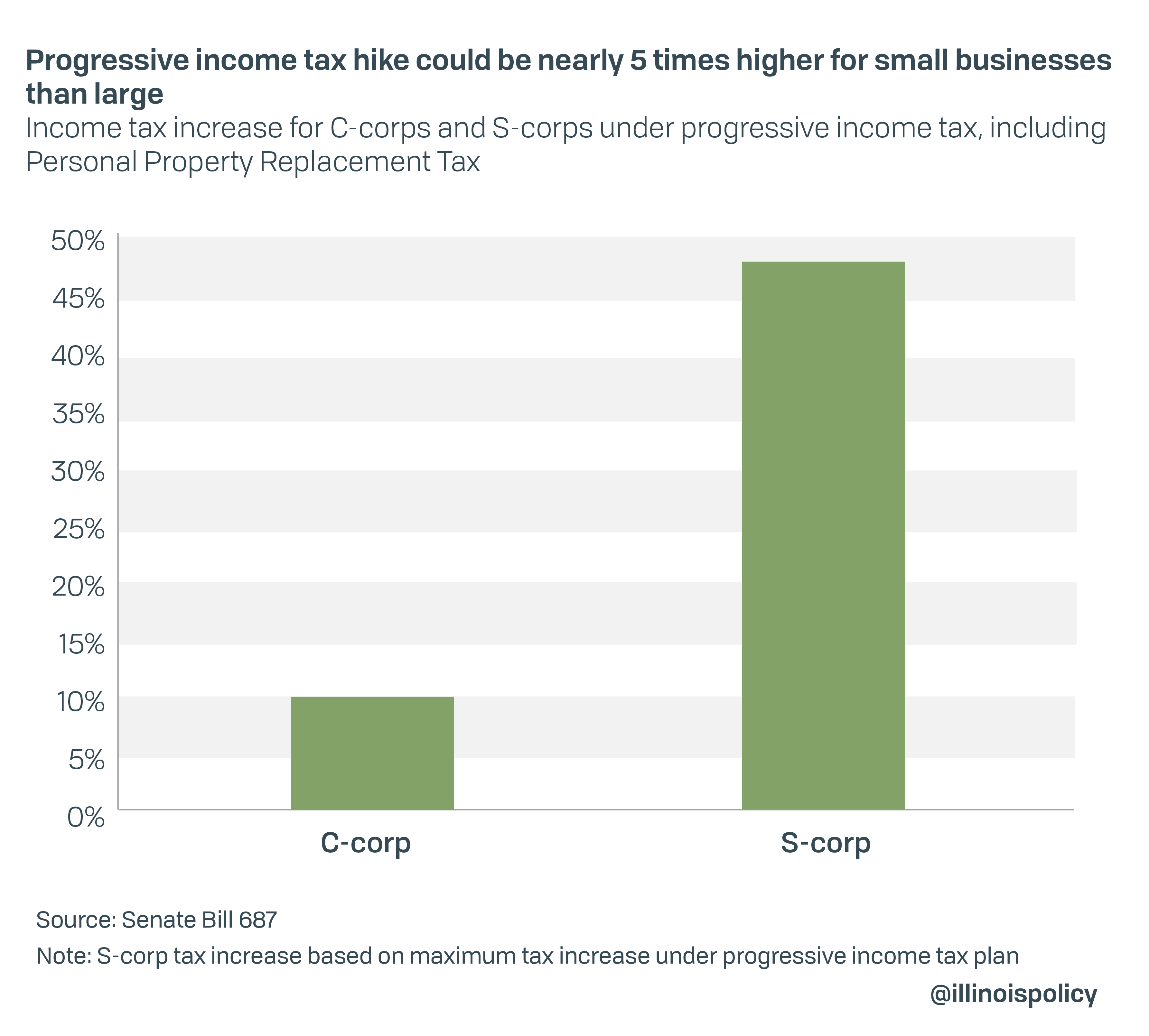Progressive income tax would create 50.3% income tax rate for small businesses
Combined state and federal income taxes would have small businesses pay more than 50% of their top-end income in taxes.
COVID-19 and state-mandated restrictions already damaged Illinois small businesses, but the extra challenge of a 50.3% marginal income tax rate awaits if Gov. J.B. Pritzker’s “fair tax” is added to their state and federal income tax burdens.
Despite wide-spread agreement that you should not raise taxes during an economic downturn, Pritzker insists Illinois needs his $3 billion income tax hike now more than ever. But massive job losses and stubbornly high unemployment rates mean there might not be a worse time for a tax hike. Hiking taxes during a recession, or just as the economy attempts to get back on its feet, would be a clear policy mistake. One reason is the income tax hike would hit the state’s largest job creators – small businesses – the hardest.
Small businesses are responsible for 60% of the net job creation in Illinois and are the businesses most at risk from the economic fallout of COVID-19. Changing to a progressive income tax in Illinois could mean a massive tax hike for these businesses and create marginal income tax rates in excess of 50% when all state and federal income taxes are included. Research has shown an increase in the top marginal tax rate is associated with a decrease in hiring activity of entrepreneurs and lower wages for their employees.
When considering all of the layers of income taxes Illinoisans face, small businesses – who pay taxes as individuals – could be left paying 50.3% of their top-end income in taxes. Total marginal income tax rates would range from 31.6% to 50.3% thanks to federal income tax, Social Security tax, Medicare tax, state income tax, and Illinois’ Personal Property Replacement Tax.
The increase in the state income tax from the current flat rate of 4.95%, to up to 7.99% under the progressive income tax, would mean that some small businesses would face a state income tax hike 5 times larger than big businesses.
While the total corporate income tax rate – including the Personal Property Replacement Tax – will be hiked by 10% (from 9.5% to 10.49% when including the replacement tax), the tax hike for pass-throughs could be up to 47% (6.45% to 9.49% when including the replacement tax).
Research from April showed fewer than half of all U.S. small businesses expected to re-open this year if the crisis lasted more than four months. For the small businesses that do manage to survive, the last thing their owners and employees need is a tax hike to crush them while they’re attempting to get back on their feet.
Small businesses such as S-corps, partnerships, LLCs, and sole proprietors make up a large majority of business establishments in Illinois, representing 71% of all private for-profit businesses, totaling more than 210,000 establishments. These small businesses also employed nearly half of Illinois’ private for-profit workforce prior to the COVID-19 downturn, or more than 2.3 million Illinoisans.
Contrary to the governor’s claims, a progressive income tax hike is the exact opposite of what Illinois lawmakers should be doing in the midst of the COVID-19 crisis.
Nearly 700,000 Illinoisans remain out of work as a result of the pandemic. That is after the first year on record in which Illinois lost private-sector jobs amid a national boom.
Imposing marginal tax rates exceeding 50% for Illinois’ largest job creators during the current economic crisis would be a painful mistake.

